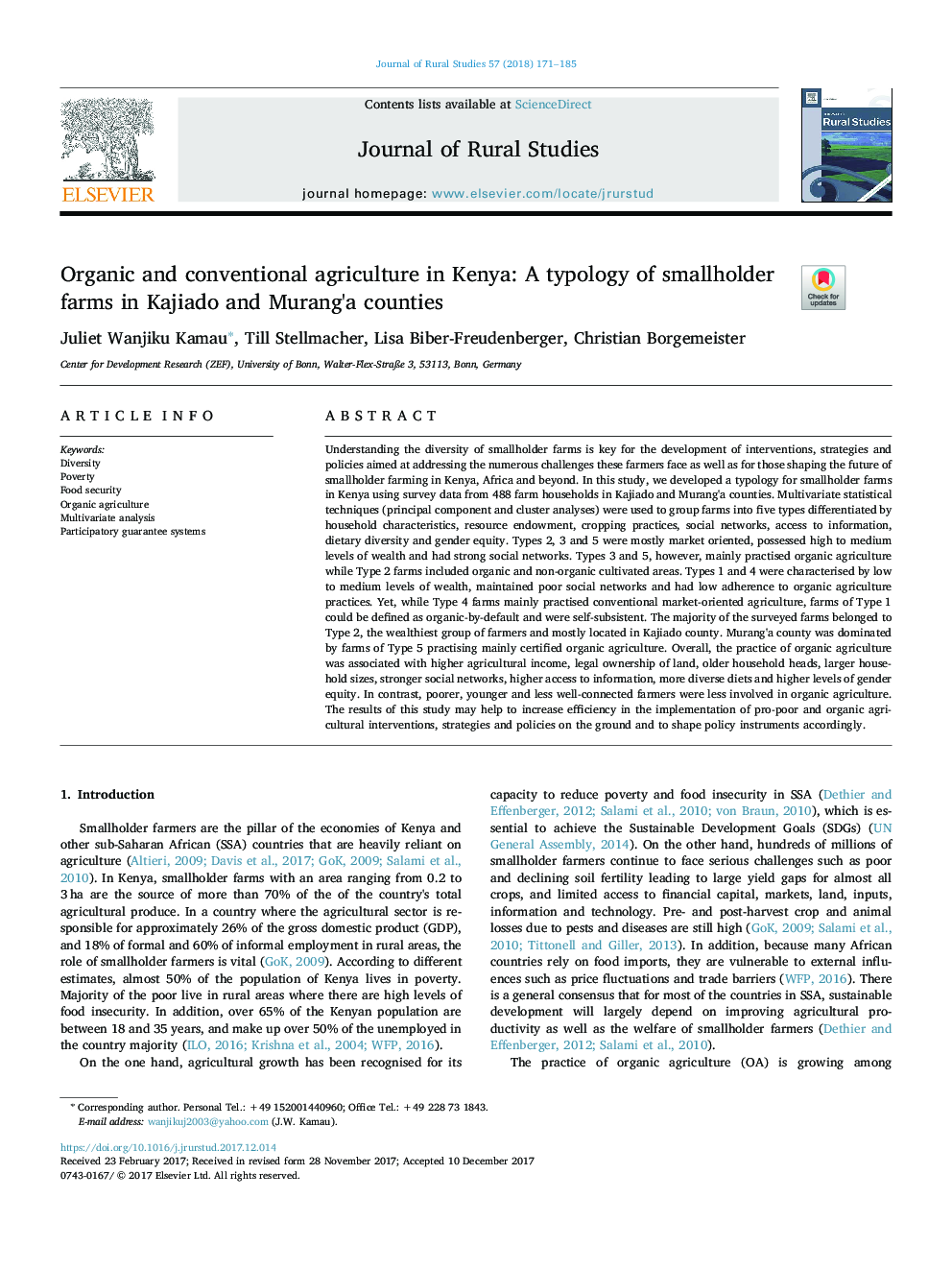| کد مقاله | کد نشریه | سال انتشار | مقاله انگلیسی | نسخه تمام متن |
|---|---|---|---|---|
| 6545370 | 1421774 | 2018 | 15 صفحه PDF | دانلود رایگان |
عنوان انگلیسی مقاله ISI
Organic and conventional agriculture in Kenya: A typology of smallholder farms in Kajiado and Murang'a counties
ترجمه فارسی عنوان
کشاورزی ارگانیک و متعارف در کنیا: نوع شناسی مزارع کوچک مالزی در مناطق کجایادو و مورگانا
دانلود مقاله + سفارش ترجمه
دانلود مقاله ISI انگلیسی
رایگان برای ایرانیان
کلمات کلیدی
تنوع فقر، امنیت غذایی، کشاورزی ارگانیک، تجزیه و تحلیل چند متغیره، سیستم های تضمین مشارکتی،
موضوعات مرتبط
علوم زیستی و بیوفناوری
علوم کشاورزی و بیولوژیک
جنگلداری
چکیده انگلیسی
Understanding the diversity of smallholder farms is key for the development of interventions, strategies and policies aimed at addressing the numerous challenges these farmers face as well as for those shaping the future of smallholder farming in Kenya, Africa and beyond. In this study, we developed a typology for smallholder farms in Kenya using survey data from 488 farm households in Kajiado and Murang'a counties. Multivariate statistical techniques (principal component and cluster analyses) were used to group farms into five types differentiated by household characteristics, resource endowment, cropping practices, social networks, access to information, dietary diversity and gender equity. Types 2, 3 and 5 were mostly market oriented, possessed high to medium levels of wealth and had strong social networks. Types 3 and 5, however, mainly practised organic agriculture while Type 2 farms included organic and non-organic cultivated areas. Types 1 and 4 were characterised by low to medium levels of wealth, maintained poor social networks and had low adherence to organic agriculture practices. Yet, while Type 4 farms mainly practised conventional market-oriented agriculture, farms of Type 1 could be defined as organic-by-default and were self-subsistent. The majority of the surveyed farms belonged to Type 2, the wealthiest group of farmers and mostly located in Kajiado county. Murang'a county was dominated by farms of Type 5 practising mainly certified organic agriculture. Overall, the practice of organic agriculture was associated with higher agricultural income, legal ownership of land, older household heads, larger household sizes, stronger social networks, higher access to information, more diverse diets and higher levels of gender equity. In contrast, poorer, younger and less well-connected farmers were less involved in organic agriculture. The results of this study may help to increase efficiency in the implementation of pro-poor and organic agricultural interventions, strategies and policies on the ground and to shape policy instruments accordingly.
ناشر
Database: Elsevier - ScienceDirect (ساینس دایرکت)
Journal: Journal of Rural Studies - Volume 57, January 2018, Pages 171-185
Journal: Journal of Rural Studies - Volume 57, January 2018, Pages 171-185
نویسندگان
Juliet Wanjiku Kamau, Till Stellmacher, Lisa Biber-Freudenberger, Christian Borgemeister,
